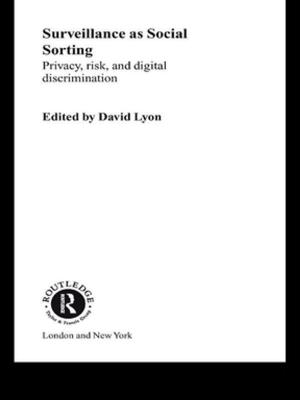Damnable Practises: Witches, Dangerous Women, and Music in Seventeenth-Century English Broadside Ballads
Nonfiction, Entertainment, Music, Theory & Criticism, History & Criticism, Reference, Social & Cultural Studies, Social Science, Gender Studies, Women&| Author: | Sarah F. Williams | ISBN: | 9781317154891 |
| Publisher: | Taylor and Francis | Publication: | March 9, 2016 |
| Imprint: | Routledge | Language: | English |
| Author: | Sarah F. Williams |
| ISBN: | 9781317154891 |
| Publisher: | Taylor and Francis |
| Publication: | March 9, 2016 |
| Imprint: | Routledge |
| Language: | English |
Broadside ballads-folio-sized publications containing verse, a tune indication, and woodcut imagery-related cautionary tales, current events, and simplified myth and history to a wide range of social classes across seventeenth century England. Ballads straddled, and destabilized, the categories of public and private performance spaces, the material and the ephemeral, music and text, and oral and written traditions. Sung by balladmongers in the streets and referenced in theatrical works, they were also pasted to the walls of local taverns and domestic spaces. They titillated and entertained, but also educated audiences on morality and gender hierarchies. Although contemporaneous writers published volumes on the early modern controversy over women and the English witch craze, broadside ballads were perhaps more instrumental in disseminating information about dangerous women and their acoustic qualities. Recent scholarship has explored the representations of witchcraft and malfeasance in English street literature; until now, however, the role of music and embodied performance in communicating female transgression has yet to be investigated. Sarah Williams carefully considers the broadside ballad as a dynamic performative work situated in a unique cultural context. Employing techniques drawn from musical analysis, gender studies, performance studies, and the histories of print and theater, she contends that broadside ballads and their music made connections between various degrees of female crime, the supernatural, and cautionary tales for and about women.
Broadside ballads-folio-sized publications containing verse, a tune indication, and woodcut imagery-related cautionary tales, current events, and simplified myth and history to a wide range of social classes across seventeenth century England. Ballads straddled, and destabilized, the categories of public and private performance spaces, the material and the ephemeral, music and text, and oral and written traditions. Sung by balladmongers in the streets and referenced in theatrical works, they were also pasted to the walls of local taverns and domestic spaces. They titillated and entertained, but also educated audiences on morality and gender hierarchies. Although contemporaneous writers published volumes on the early modern controversy over women and the English witch craze, broadside ballads were perhaps more instrumental in disseminating information about dangerous women and their acoustic qualities. Recent scholarship has explored the representations of witchcraft and malfeasance in English street literature; until now, however, the role of music and embodied performance in communicating female transgression has yet to be investigated. Sarah Williams carefully considers the broadside ballad as a dynamic performative work situated in a unique cultural context. Employing techniques drawn from musical analysis, gender studies, performance studies, and the histories of print and theater, she contends that broadside ballads and their music made connections between various degrees of female crime, the supernatural, and cautionary tales for and about women.















